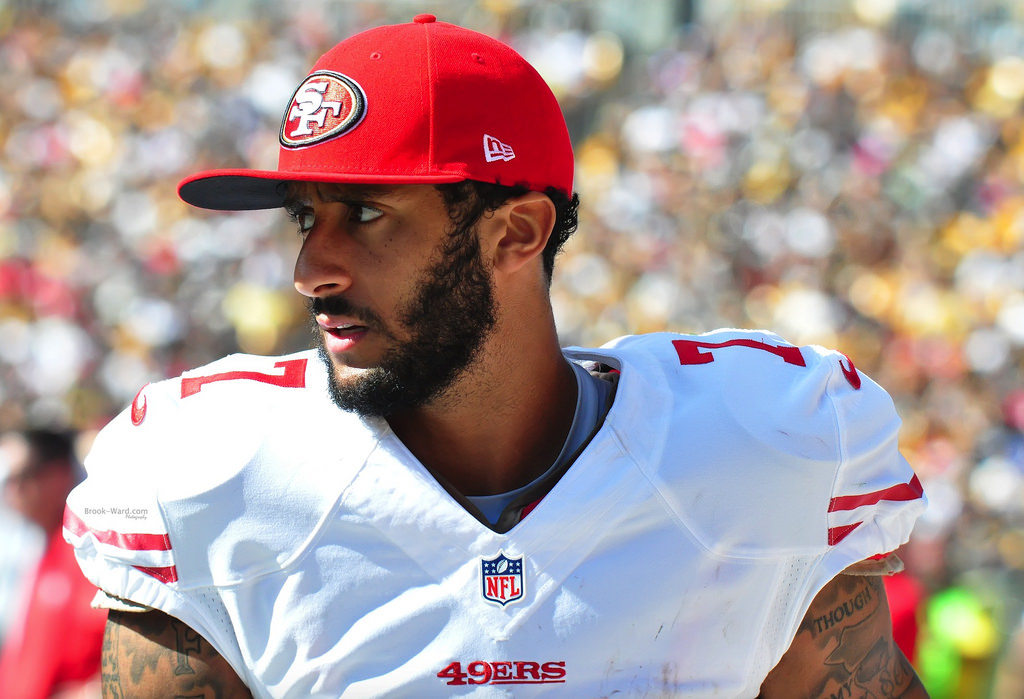San Francisco 49ers quarterback Colin Kaepernick made headlines this weekend for not standing during the national anthem at Friday’s pre-season game. When asked about his decision he said, “I am not going to stand up to show pride in a flag for a country that oppresses black people and people of color.”
Kaepernick is not the only athlete to call attention to social issues in 2016.
- In July, players from three WNBA teams defied the league’s dress code by wearing black warm up shirts to call attention to police involved shootings in their states. The league initially fined the players and their teams for violating the dress code, but eventually dismissed the charges.
- At the Olympic games in Rio de Janeiro, Ethiopian runner Feyisa Lilesa crossed his arms at the marathon finish line in protest of the persecution faced by the Omoro people of his home country.
- Then there are these seven times that athletes spoke out about race and racism in America. (Scroll to the bottom of the article to view the video.)
[UPDATE]
Since Kaepernick’s protest, other athletes have been inspired by his actions, and have joined in solidarity.
- Megan Rapinoe, professional soccer player for the U.S. Women’s National Team and the Seattle Reign, kneeled during the national anthem at a recent home game.
- The entire Seattle Seahawks team has committed to protesting the national anthem during their home opener on September 11.
On the flip side, some feel that politics and sports should stay separate. Others felt disrespected by Kaepernick’s decision not to stand.
- Greta Van Susteren of Fox News says that political statements made at sporting events ruin the game.
- Former teammate Alex Boone was “upset and disappointed” by Kaepernick’s actions.
What do you think? Should athletes use their platform to bring awareness to social issues, or should they focus on playing their sport?
Respond in the comments below or on Twitter using the hashtag #DoNowKaepernick. Follow the trending Twitter hashtag #Kaepernick to see what others have to say.
Also, this…
Political Tension at the Olympics: A History [The Lowdown, KQED]
